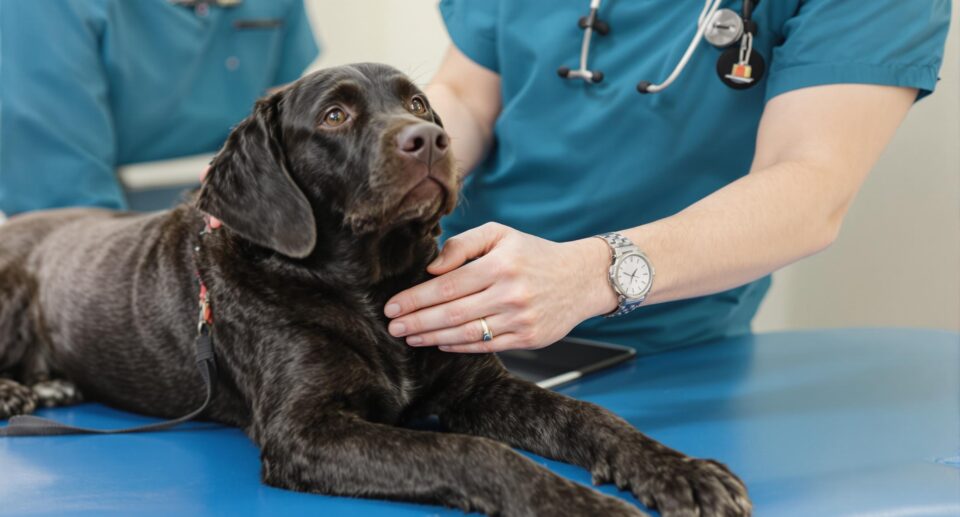Lymphoma Symptoms in Dogs

Symptoms of lymphoma (lymphosarcoma) in dogs and cats
Symptoms of lymphoma in dogs and cats may vary and often mimic many other illnesses depending on the organs involved and the length of time before diagnosis. Non-specific symptoms include lethargy, loss of appetite, weight loss, increased thirst and/or urination, fever, shortness of breath, fluid buildup in the chest, weakness, nasal discharge or bleeding, vomiting, and diarrhea. You may notice painless swollen lymph nodes on your pet which can be subsequently confirmed by your veterinarian.
- Lethargy
- Loss of appetite/weight
- Increased thirst/urination
- Fever
- Shortness of breath
- Fluid buildup in chest
- Weakness
- Nasal discharge/bleeding
- Vomiting
- Diarrhea
Diagnosing lymphoma (lymphosarcoma) in dogs and cats
All pets with clinical signs associated with lymphoma should have a full veterinary exam, blood work, and urine analysis to help determine overall body health. Radiographs and ultrasound of the chest or abdomen are often used to find out if the cancer has spread to other organs. When peripheral or abdominal/chest nodes are involved, needle aspiration of these affected areas is often used to tentatively diagnose lymphoma. However, the gold standard of diagnosis and staging is done through biopsy, and examination of cells under a microscope by a veterinary pathologist. Bone marrow aspirate or biopsy is often needed also to determine if the cancer has invaded the marrow. If the central nervous system is possibly involved, CT scan or MRIs should also be done.





